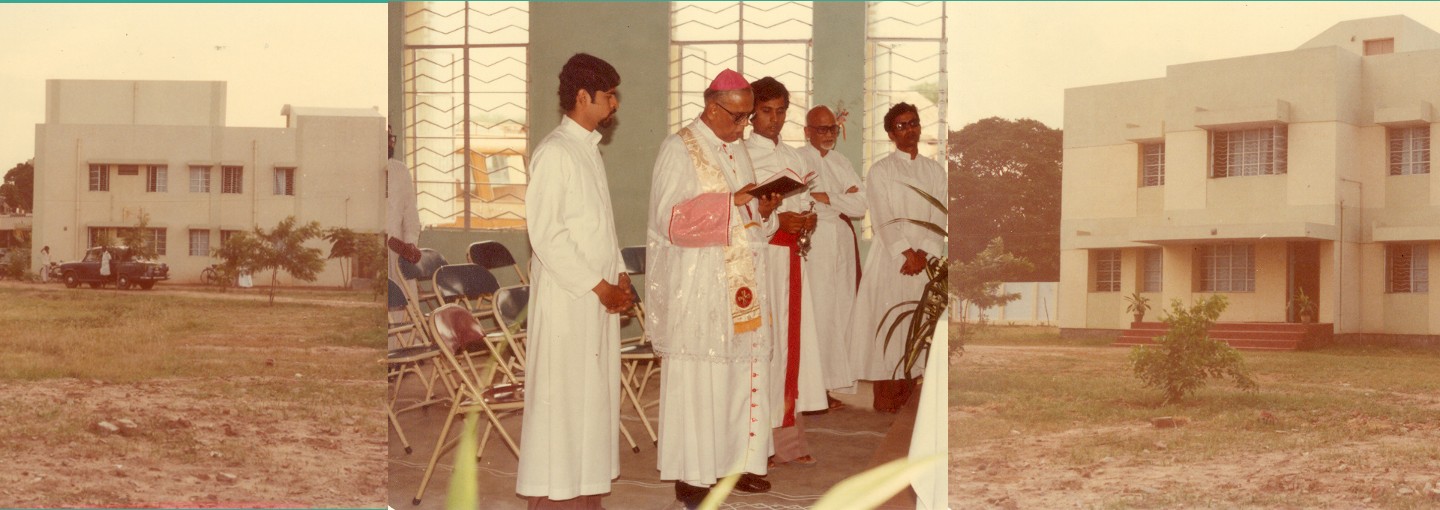
Institute of Development, Education, Action and Studies
Accompanying the Marginalized People in Tamil Nadu since 1984
In 1978, the Jesuits of Madurai Province began a mission in the East Ramnathapuram area among the Dalits, having its headquarters in Devakottai. The primary strategy was to educate and organise the Dalits to live a dignified life opposing feudal landlordism & caste discrimination. While the movement of the people was called as Scheduled Caste Welfare Movement, the Jesuits and collaborators called themselves as PALMERA (People’s Action and Liberation Movement in East RAmnad ) team. Several Jesuits, religious and lay persons contributed and benefitted through this grassroots engagement. In 1985, the People’s Organization was rechristened as the Worker’s People Rights Movement. As the grassroots works intensified, the Jesuits felt the need to initiate a training center in Madurai, to empower the Dalits and other marginalized communities and work for their holistic development, and thus IDEAS was born.
Institute of Development, Education, Action, and Studies (IDEAS) was founded in 1984 at 26 A, Valaithoppu, Chintamani Road, Madurai 625001. On the same premises, the Tamil Nadu unit of the All India Catholic University Federation (AICUF) was also established, which moved to Trichy in 1999.
IDEAS has been playing a significant role as a Regional Resource Centre for various kinds of marginalized groups in society: Dalits, Women, Children, Unorganized Labourers, Sri Lankan Tamil Repatriates working as bonded labourers in the commercial forests of Kodaikanal Hills, Tamil Refugees from Sri Lanka, Dalit Catholics, Arunthathiyars, Puthirai Vannars, Palaiyar and Pulayar Tribes on Kodaikanal Hills, and the Nomadic Tribes in the plains. Various civil society groups working with these groups have also benefitted from the institute’s services. Right from its inception, the focus of the institute has been the empowerment of marginalized groups to become people’s movements for accessing and enjoying their constitutional rights and entitlements and to live a dignified life.
In the late 90s, responding to the nexus among crony market forces, religio-cultural nationalist politics and hegemonic state and the increasing rate of discrimination and atrocities against Dalits, women and children, the institute has turned its lens in a new direction: socio-political, legal, and economic capacitation and empowerment of Dalit Women, Women facing Violence, Widows and Manual Scavenging Workers. Challenges posed to democracy and secularism today are another important area of concern.
From 2000, top on the list of engagements is the Capacity building programmes for members and leaders of people’s movements/organizations conducted in and outside the Institute on a wide range of themes covering socio-cultural analysis, leadership skills, legal literacy, patriarchy and gender rights, the status of Dalit Catholics, etc. Besides, Issue-based involvement through legal information, guidance and judicial interventions, Research and Publications for advocacy purposes were other important activities. Seminars and Workshops enable teachers, NGOs, youth, and leaders of people’s movements to develop their communication skills, acquire media education and learn social video production skills. The institute’s Knowledge Services include library facilities and e-documentation despatch on current social issues. Collaboration with Jesuit Madurai Province social action centres and other institutions, with national Jesuit social centres and with Church agencies involved in social action expands the institute’s scope of activity.
Given that the achievements since 1984 are indeed a powerful testimony to what the institute had envisioned, done, and impacted, the coming decades offer newer challenges to serve the marginalised with deeper commitment and greater vigour.
